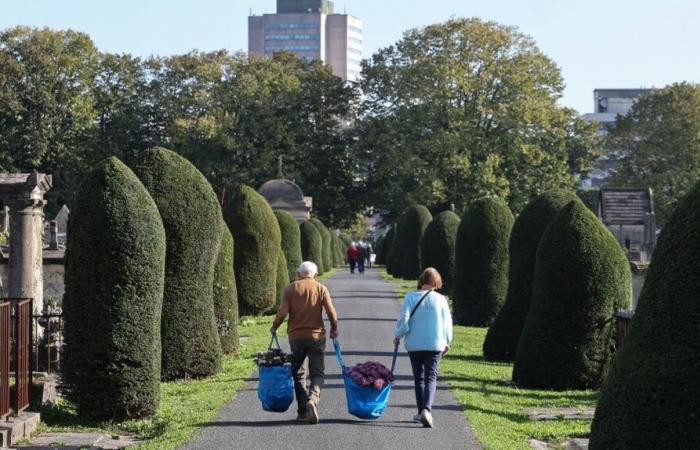Four out of ten French people choose cremation. 250,000 each year. In 1994, it was one in ten French people. The practice has become the symbol of the change in funeral rites. New crematoriums are springing up everywhere and cemeteries are gradually giving more and more space to columbariums – places where funeral urns are received – like that of the Chartreuse in Bordeaux, inaugurated a year ago.
The reasons are known, change in mentality, notably a consequence of the de-Christianization of society, but also an increase in environmental awareness. Cremation also costs a little less (4,434 euros on average excluding additional services, according to a study carried out by Silver Alliance, compared to 5,044 euros for a burial).
Result: waiting times for crematoriums are lengthening, to the point that a decree published on July 10, 2024 extends the maximum time for burial and cremation of a body, from six days after death previously to fourteen from now on , “which makes the work of funeral directors easier, especially in times of pandemic, but which also risks further increasing the bill for families if the days in funeral homes increase,” warns Alèxe Duvaut, doctoral student in Political Science in Bordeaux.
On November 1, 2023, a columbarium was inaugurated at the Chartreuse cemetery to meet growing demand.
Archives Claude Petit / SO
Diversification
In the metropolis of Bordeaux, the new funeral management is responsible for “diversifying the funeral offering”, states Jean-Christophe Chadanson of the public urban planning agency A-urba. “For example, we communicate the fact that it is possible to be buried directly in the ground, outside the vault. Many don't know it. »
Burial, cremation, etc. Other funeral practices could soon be authorized in France, such as humusation, or terramation, the principle of “human composting”, already authorized in certain countries and under study in France, or aquamation, a type of of “water cremation”, less polluting than by fire and already legalized in American states and Canada.
However, Dimitri Boutleux, deputy mayor of Bordeaux, recognizes this: “Practices are evolving but the transfer of cemeteries to places with more vegetation and more diverse uses will be slow. »






